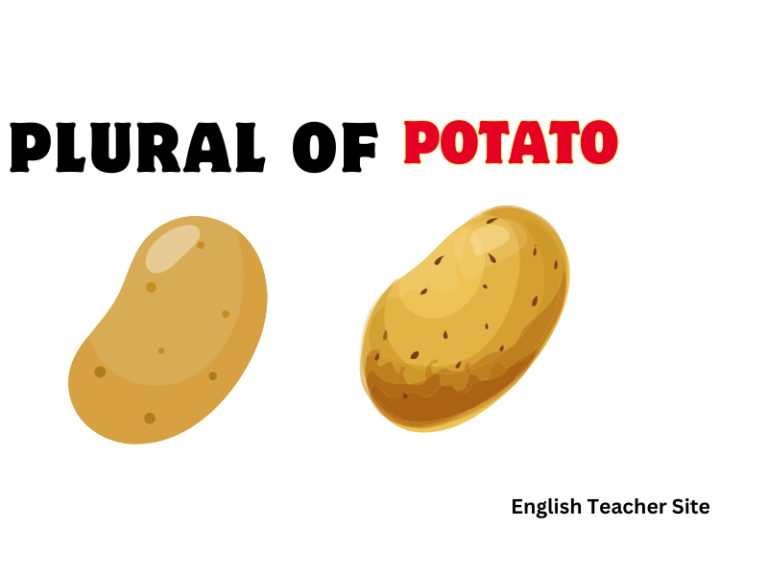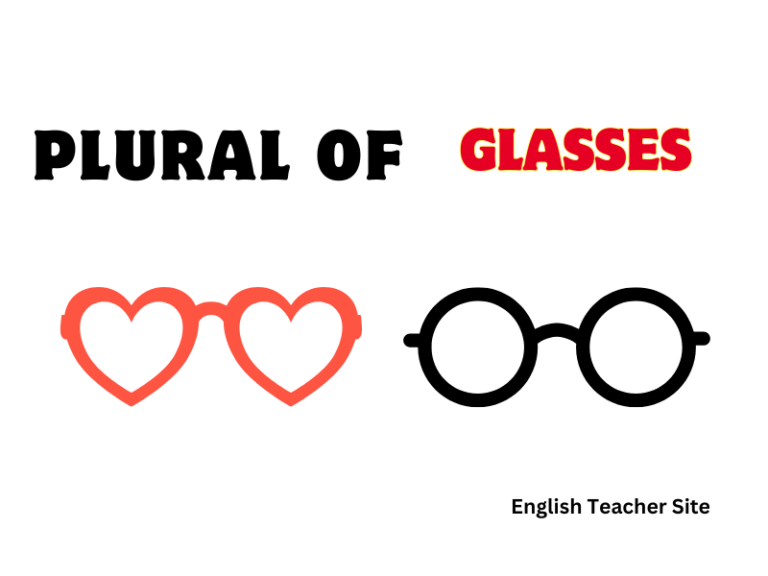What’s the Plural of Spectrum: Unveiling the Correct Term

- The word “spectrum” has two correct plural forms: “spectra” and “spectrums.”
- “Spectra” follows the Latin rule for pluralization, while “spectrums” is an Anglicized version.
- Both plural forms are legitimate, with “spectra” often favored in scientific and formal writing.
The plural form of the word “spectrum” can sometimes cause confusion due to its Latin origin. In the realm of English grammar, two acceptable plural forms exist: “spectra” and “spectrums.” The former adheres to the original Latin pluralization, while the latter represents a more Anglicized version. Both plural forms are correct, but “spectra” is more commonly used in formal writings and specific scientific contexts.
What’s the Plural of Spectrum?
The plural of “spectrum” can be formed in two ways:
- Spectra: This is the original Latin plural, and it’s commonly used in scientific contexts.
- Spectrums: This is the anglicized plural form, and it’s more frequently used in general contexts.
Below are two tables that summarize the usage contexts for each plural form:
Table 1: Usage of ‘Spectra’
| Context | Usage Example |
|---|---|
| Science | The physics lab examined the light spectra. |
| Technical | Astronomers analyze the spectra of stars. |
Table 2: Usage of ‘Spectrums’
| Context | Usage Example |
|---|---|
| General | There were various political spectrums represented. |
| Informal | The festival showcased a wide spectrums of art. |
When to use each form largely depends on the formality and specificity of the context:
- Spectra is often the choice in academic and scientific settings.
- Spectrums is used in more general and informal situations.
- Use ‘spectra’ when discussing scientific phenomena or when wanting to adhere to the classic Latin pluralization.
- Opt for ‘spectrums’ in everyday language or when addressing a varied range of non-scientific concepts.
Singular Form of Spectrum
In scientific circles, “spectrum” refers to the range of colors visible when light is dispersed through a prism. The singular form “spectrum” is indicative of the entire range as a collective, unified concept.
Etymology and Usage
| Origin | Usage |
|---|---|
| Latin (‘spectrum’) | In English to mean a range in a field (e.g., “the political spectrum”). |
| Late Latin | To denote an apparition or ghost. |
The singular form is also applied in various disciplines to mean a sequence or variety within a specific domain. Below are examples of its use in diverse fields:
- Physics: “The light spectrum is fundamental in the study of optics.”
- Psychology: “The autism spectrum encompasses a range of neurodevelopmental conditions.”
Current Usage in English
- In contemporary English grammar discussions, the recommendation is to use “spectrum” in the singular when referring to one range or sequence.
- The singular form retains its relevance and does not vary regardless of its plural counterpart.
| Context | Singular Form |
|---|---|
| When discussing a single range | spectrum |
| In science or technology | spectrum |
Meaning of Spectrum
The term spectrum originates from Latin, wherein it typically referred to an apparition or image seen in a dream or vision. Today, the word is paramount in scientific terminology and general English parlance. It represents a broad concept with multifaceted applications across various fields such as physics, optics, and social sciences.
In physics, the spectrum primarily defines the range of different types of electromagnetic radiation, most often visible in light dispersal. For instance, when white light passes through a prism, it separates into a continuum of colors, each defined by its wavelength—a phenomenon symbolizing the optical spectrum.
Spectra or spectrums refer to the plural form of spectrum. Here’s a quick overview:
| Singular | Plural |
|---|---|
| Spectrum | Spectra |
| Spectrums |
Spectrum also extends beyond physics, referring to an array of items, conditions, or opinions lying within a continuous sequence, often between two polar extremities. Below are examples illustrating its usage:
- The political spectrum refers to the ideological range from left-wing to right-wing policies.
- In psychology, the autism spectrum outlines a variety of developmental profiles and abilities.
| Field | Application of Spectrum |
|---|---|
| Physics/Optics | Classification of electromagnetic waves by wavelength. |
| Social Sciences | Identifying ranges within political ideologies or conditions. |
Other Latin Nouns
Nouns with -um to -a Conversion
Latin nouns ending in -um usually form their plural by changing this ending to -a. This pattern is consistent with spectrum, which has both “spectra” and “spectrums” as valid plurals.
| Singular (Latin Origin) | Plural (Traditional Latin) | Plural (Anglicized) |
|---|---|---|
| curriculum | curricula | curriculums |
| datum | data | datums |
| forum | fora | forums |
Nouns with -us to -i Conversion
Latin nouns ending in -us typically move to a plural in -i in their traditional Latin form, though English adaptations often simply add an -es or change -us to -os.
| Singular (Latin Origin) | Plural (Traditional Latin) | Plural (Anglicized) |
|---|---|---|
| alumnus | alumni | alumnuses |
| focus | foci | focuses |
| cactus | cacti | cactuses |
Here are a few other Latin nouns, each taking a different route in plural formation:
- Appendix, with plurals formed as appendices (Latin) and appendixes (Anglicized).
- Thesis, which becomes theses in both traditional and Anglicized forms.
- Matrix, forming matrices (Latin) and matrixes (Anglicized).
Sentences with the Word Spectrum
Frequency Spectrum:
- The physics lecture covered the entire electromagnetic spectrum, from gamma rays to radio waves.
- Artists often utilize the visible spectrum to create visually stunning works.
Opinion Spectrum:
- The debate showcased a wide spectrum of opinions on climate change.
- Within this political party, there’s a broad spectrum of beliefs.
Use in Various Contexts:
| Context | Sentence Example |
|---|---|
| Technological Applications | The engineer analyzed the spectrum of signals. |
| Cultural Significance | Her research spans the spectrum of human cultures. |
Autism Spectrum:
- Individuals on the autism spectrum often have unique sets of strengths and challenges.
- The new therapy is designed for a wide spectrum of developmental disorders.
Biological Diversity:
- The rainforest is home to an incredible spectrum of biodiversity.
- Scientist’s knowledge of the genetic spectrum expanded with this discovery.
Application Examples of Spectrums/Spectra
Science and Technology: In scientific contexts, “spectra” is predominantly used, referring to a range of values, such as light or sound waves, analyzed in studies and experiments.
| Wavelength | Application |
|---|---|
| Visible | Optical Spectroscopy |
| Infrared | Infrared Astronomy |
| Ultraviolet | Fluorescence Analysis |
Humanities and Social Sciences: In these areas, either plural can be found, often depending on the author’s style. Here, the term often refers to a continuum of ideas, beliefs, or positions.
| Concept | Context |
|---|---|
| Political | Political ideologies |
| Economic | Market structures |
| Cultural | Social attitudes |
- Linguistics: When discussing phonetics or dialect spectrums, both plurals are correct.
- Business and Management: The discourse might include different management or operational spectrums or spectra to encompass a variety of practices.
In programming and data visualization, spectrums also refer to a range of values plotted on a graph or chart, crucial for analysis.
It is important to note that the plural is not just a matter of grammatical correctness; it can also signal the writer’s or speaker’s background, level of formality, or the context in which they are communicating. Whether choosing “spectrums” or “spectra,” the key is consistency within a given document or presentation.
Educational Materials: Textbooks may favor “spectra” to adhere to traditional language roots, especially in formal scientific education.
Origin of the Word Spectrum
The term spectrum has evolved through history and taken on various meanings. Initially, in the early 17th century, spectrum was used to describe a ghost or apparition. This usage has since become obsolete. The word itself originates from the Latin ‘spectrum’, meaning ‘an appearance, image, apparition, specter’, which comes from the verb ‘specere’, signifying ‘to look at or view’.
| Latin Root | Meaning in Latin | Initial English Meaning |
|---|---|---|
| specere | to look at, view | apparition, phantom, specter |
Later, in the 1670s, spectrum acquired a scientific meaning related to optics. It started being used to describe the band of colors that is visible when a beam of light is dispersed through a prism, separating the light into a range of colors that corresponds to different wavelengths — a phenomenon now known as the visible spectrum.
| Term | Scientific Use | Definition |
|---|---|---|
| spectrum | Mid-17th century | A band of colors as seen in a rainbow or through a prism |
Emphasis on the plural form of spectrum emerged as a result of its Latin origins. The plural ‘spectra’ aligns with conventional Latin pluralization, changing the Latin singular suffix ‘-um’ to ‘-a’. However, English also accommodates ‘spectrums’ as the plural, reflecting common English pluralization patterns.
- Latin Plural: spectra
- English Plural: spectrums
The word spectrum not only relates to visual phenomena but has extended metaphorically to describe a wide range of ideas or a continuum in various contexts, such as political views, mental health spectrums, and more.
Sources
My name is Khamis Maiouf. I am the creator of the English Teacher Site, dedicated to providing valuable resources and insights for students around the world. With a passion for education and a commitment to helping students enhance their skills, I aim to make English teaching more effective and enjoyable for both educators and students.






